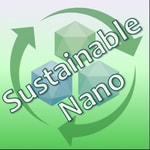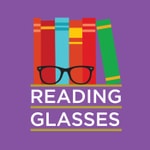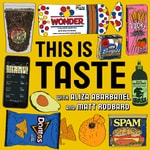Sustainable Nano – Détails, épisodes et analyse
Détails du podcast
Informations techniques et générales issues du flux RSS du podcast.

Sustainable Nano
Center for Sustainable Nanotechnology, Elfy Chiang
Fréquence : 1 épisode/56j. Total Éps: 50

Classements récents
Dernières positions dans les classements Apple Podcasts et Spotify.
Apple Podcasts
🇩🇪 Allemagne - naturalSciences
06/01/2025#89🇩🇪 Allemagne - naturalSciences
05/01/2025#71🇩🇪 Allemagne - naturalSciences
04/01/2025#52
Spotify
Aucun classement récent disponible
Liens partagés entre épisodes et podcasts
Liens présents dans les descriptions d'épisodes et autres podcasts les utilisant également.
See all- http://freemusicarchive.org
335 partages
- http://susnano.wisc.edu
45 partages
- https://twitter.com/grimalkina
5 partages
- https://twitter.com/paige_kinsley
3 partages
- https://twitter.com/professor_dave
2 partages
Qualité et score du flux RSS
Évaluation technique de la qualité et de la structure du flux RSS.
See allScore global : 83%
Historique des publications
Répartition mensuelle des publications d'épisodes au fil des années.
Ep 45. The World is Really Ready for Change
Saison 6 · Épisode 6
vendredi 15 mars 2024 • Durée 37:11
Professor Mike Curry of the North Carolina Agricultural & Technological State University (NCAT) is a scientist, inventor, mentor, and advocate with a passion for bringing attention to the great research that happens at Historically Black Colleges & Universities (HBCUs). In this episode we share an interview between Dr. Curry and Dr. Bob Hamers, Director of the NSF Center for Sustainable Nanotechnology, discussing Dr. Curry's nanocellulose research and the process of bringing HBCUs and Primarily White Institutions (PWIs) together for meaningful collaboration.
image shows Mike Curry (above) and Bob Hamers (below) during their Zoom call to record this interview
Want more podcast episodes? You can find them all on our podcast page, or you can subscribe through Apple Podcasts or Overcast, or listen on NSF's Science Zone Radio.
ABOUT THIS EPISODE
Related links:
- Mike Curry: CSN profile, LinkedIn
- Bob Hamers: CSN profile, Lab website
- Accounts of Chemical Research: Special Issue on Advancing Research at HBCUs
- NCAT Joint School of Nanoscience and Nanoengineering,
- Podcast episode 12: Making Sustainable Nanoparticles from Plants with Mike Curry
- Podcast episode 7: What Do Glaciers Have to Do with Nanoscience? with Bob Hamers
- CSN & Curry group alum Dr. Donald White
- Binghamton University Emerging Science & Technology Summit
- NSF Ideas Lab: Advancing Research Capacity at HBCUs through Exploration and Innovation (ARC-HBCU)
- Recent patent: High-throughput synthesis of metallic nanoparticles
- The NSF Center for Sustainable Nanotechnology
Interviewee: Mike Curry
Interviewer: Bob Hamers
Producer/Host: Miriam Krause
Music: PC III and Dexter Britain
This material is based upon work supported by the National Science Foundation under the Center for Sustainable Nanotechnology, grant number CHE-2001611. Any opinions, findings, and conclusions or recommendations expressed on this podcast are those of the participants and do not necessarily reflect the views of the National Science Foundation or the participating institutions.
Ep 44. Part of Something Bigger: Social Media, Mentoring, & Friendship with Stuart Cantrill
Saison 6 · Épisode 5
mercredi 20 décembre 2023 • Durée 41:23
Early in the COVID pandemic, then-graduate student Safia Jilani became Twitter buddies with the Chief Editor of the prestigious journal Nature Chemistry, Dr. Stuart Cantrill. Dr. Jilani is now a Postdoctoral Fellow with the NSF Center for Sustainable Nanotechnology, and Dr. Cantrill is now the Editorial Director for all of Nature's physics and chemistry journals... and they finally got the chance to meet in person last month! In this episode we bring you a conversation between these two chemists about the power and challenges of social media, the importance of mentorship, and being open to unforeseen career paths.
image shows Stuart Cantrill (left) and Safia Jilani (right) enjoying ice cream in Cambridge
Want more podcast episodes? You can find them all on our podcast page, or you can subscribe through Apple Podcasts or Stitcher, or listen on NSF's Science Zone Radio.
ABOUT THIS EPISODE
Related links:
- Stuart Cantrill: blog, BlueSky
- Safia Jilani: website, BlueSky
- Nature Chemistry: website, Twitter
- Nature Nanotechnology: website, Twitter
- A Review and Critique of Academic Lab safety research by Dana Ménard and John F. Trant. Nature Chemistry 2020, 12, 17-25.
- The race to the bottom and the route to the top by Dave K. Smith. Nature Chemistry 2020, 12, 101-103. (Professor_Dave on Twitter)
- A Diverse View of Science to Catalyse Change by César A. Urbina-Blanco, Safia Z. Jilani_,_ Isaiah R. Speight, Michael J. Bojdys, Tomislav Friščić, J. Fraser Stoddart, and colleagues. Nature Chemistry 2020, 12, 773-776 (note: this editorial was also co-published in 5 additional journals)
- Ternary CoPtAu Nanoparticles as a General Catalyst for Highly Efficient Electro-Oxidation of Liquid Fuels by Junrui Li, Safia Jilani, & Colleagues. Angewandte Chemie International Edition 2019, 11527-11533.
- Other folks mentioned in this episode: Junrui Li, Michelle Muzzio, RealTimeChem and Jason Woolford, Martin Stoermer, American Chemical Society, Royal Society of Chemistry, BlackinChem, ChemJobber
- The Center for Sustainable Nanotechnology
Interviewee: Stuart Cantrill
Interviewer: Safia Jilani
Producer/Host: Miriam Krause
Music: PC III and Dexter Britain
This material is based upon work supported by the National Science Foundation under the Center for Sustainable Nanotechnology, grant number CHE-2001611. Any opinions, findings, and conclusions or recommendations expressed on this podcast are those of the participants and do not necessarily reflect the views of the National Science Foundation or the participating institutions.
Ep 36. "Yes, and...": A Guide to Effective Science Communication Using Improvisation
Saison 4 · Épisode 5
jeudi 20 août 2020 • Durée 40:42
Science communication takes a lot of different forms, including improvisation. In this episode, we interview Center for Sustainable Nanotechnology graduate student Paige Kinsley and alum Liz Laudadio. The episode dives deep into the life skills you can learn from doing improv, how it can make you a better listener, and how it relates to science storytelling. Not to mention the benefits of finding hobbies to do with your labmates.
(Paige Kinsley (left) and Liz Laudadio (right), mid-improv performance and recording this episode's interview, along with Blue the cat. (photos courtesy of Liz Laudadio & Paige Kinsley)
Want more podcast episodes? You can find them all on our podcast page, or you can subscribe through Apple Podcasts or Stitcher, or listen on NSF's Science Zone Radio.
ABOUT THIS EPISODE
Related links:
- Liz Laudadio: website, Twitter
- Paige Kinsley: website, Twitter
- Atlas Theater Company
- Minh Tam Hoang's blog post: coming soon!
- Article about summer undergraduate programs: COVID-19 shakes up summer internship and research opportunities
- The Center for Sustainable Nanotechnology
- Argonne National Laboratory
Interviewees: Liz Laudadio & Paige Kinsley
Interviewer/Editor: Stephanie Mitchell
Producer/Host: Miriam Krause
Assistant Producer: Emma Bublitz
Music: PC III and Dexter Britain
This material is based upon work supported by the National Science Foundation under the Center for Sustainable Nanotechnology, grant number CHE-1503408. Any opinions, findings, and conclusions or recommendations expressed on this podcast are those of the participants and do not necessarily reflect the views of the National Science Foundation or the participating institutions.
Ep. 35 Photographing the Unphotographable
Saison 4 · Épisode 4
vendredi 8 mai 2020 • Durée 37:23
How do you photograph the unphotographable? In this episode we interview MIT research scientist Felice Frankel, who specializes in visualizing science, using pictures to draw audiences in and help scientists more deeply examine their own work, including nanoscale materials that are smaller than wavelengths of light! We also have a mini-interview with graduate student Paige Kinsley about how COVID-19 is affecting chemistry labs in the Center for Sustainable Nanotechnology.
(photos by Miriam Krause)
Want more podcast episodes? You can find them all on our podcast page, or you can subscribe through Apple Podcasts or Stitcher.
ABOUT THIS EPISODE
Related links:
- Felice Frankel
- Books: Modern Landscape Architecture, Picturing Science & Engineering, No Small Matter
- Stephen J. Gould; E.O. Wilson; George Whitesides; Don Eigler
- Sustainable Nano blog posts: Ferrofluid, gold color & surface plasmon resonance
- The Center for Sustainable Nanotechnology
Interviewees: Felice Frankel & Paige Kinsley
Interviewer: Stephanie Mitchell
Editor: Natalie Hudson-Smith
Producer/Host: Miriam Krause
Music: PC III and Dexter Britain
This material is based upon work supported by the National Science Foundation under the Center for Sustainable Nanotechnology, grant number CHE-1503408. Any opinions, findings, and conclusions or recommendations expressed on this podcast are those of the participants and do not necessarily reflect the views of the National Science Foundation or the participating institutions.
Ep. 34 Winter Holiday Mini-Episode: Colorful Carbon Dots
Saison 4 · Épisode 3
vendredi 20 décembre 2019 • Durée 08:19
Winter can get pretty dark, especially in northern latitudes, and many cultures have winter holidays that feature and celebrate lights. For our last episode of 2019 we decided to talk about the bright and colorful chemistry of carbon dots! In this mini episode we interview Dr. Christy Haynes, Professor of Chemistry at the University of Minnesota and Associate Director of the Center for Sustainable Nanotechnology.
Left: Dr. Christy Haynes. Right: Transmission electron microscopy (TEM) image of malic acid carbon dots with an inset photo of the carbon dots in aqueous solution and illuminated by 365 nm UV (carbon dot image by Bo Zhi)
Want more podcast episodes? You can find them all on our podcast page, or you can subscribe through Apple Podcasts or Stitcher.
ABOUT THIS EPISODE
Related links:
- Christy Haynes: website, Twitter
- Sustainable Nano blog post: Have you ever seen colorful "carbon"?
- Pham, S. et al. Carbon Dots: A Modular Activity To Teach Fluorescence and Nanotechnology at Multiple Levels. Journal of Chemical Education, 2017. 94(8) 1143-1149. doi: 10.1021/acs.jchemed.6b00995
- The Center for Sustainable Nanotechnology
Interviewee: Christy Haynes
Producer/Host: Miriam Krause
Music: PC III and Dexter Britain
This material is based upon work supported by the National Science Foundation under the Center for Sustainable Nanotechnology, grant number CHE-1503408. Any opinions, findings, and conclusions or recommendations expressed on this podcast are those of the participants and do not necessarily reflect the views of the National Science Foundation or the participating institutions.
Ep. 33 It Just Didn't Feel Like Me: Belonging and Sexism in Science
Saison 4 · Épisode 2
mardi 26 novembre 2019 • Durée 48:09
How often do college women in STEM (science, technology, engineering, and math) experience sexism? And how do these experiences affect their likelihood of staying in scientific fields? In this episode we talk with Majel Baker, a counseling psychologist who investigated these questions in her doctoral dissertation. Spoiler alert: sexism is bad. But there are ways we can work to improve the situation. Plus, we have a mini-interview about what this year's chemistry Nobel prize had to do with sustainable nanotechnology.
(photo courtesy of Majel Baker)
Want more podcast episodes? You can find them all on our podcast page, or you can subscribe through Apple Podcasts or Stitcher.
ABOUT THIS EPISODE
Related links:
- Majel Baker: website, Twitter
- articles coming soon (links will be added when available): Daily Sexism Experienced by Women in STEM Majors; The power of peers: Correlates of classroom climate in undergraduate women in STEM
- Natalie Hudson-Smith: website, Twitter
- National Academies Report: Sexual Harassment of Women: Climate, Culture, and Consequences in Academic Sciences, Engineering, and Medicine (2018)
- Cheryan, et al. Why are some STEM fields more gender balanced than others? Psychological Bulletin, 2017, 143(1) 1-35.
- Grogan, K. How the entire scientific community can confront gender bias in the workplace. Nature Ecology & Evolution, 2019, 3,3-6.
- Pollack, E. What really keep women out of tech. New York Times, Oct 10, 2015.
- Rogers, M. STEM-ming the Tide. Inside Higher Ed, Nov 27, 2013.
- Resources about gender: Planned Parenthood - Sexual Orientation and Gender; GLAAD Glossary of Terms - Transgender; The Trevor Project - Trans + Gender Identity
- Liz Laudadio: website
- 2019 Nobel Prize in Chemistry
- Sustainable Nano blog posts:
- The Center for Sustainable Nanotechnology
Interviewees: Majel Baker & Liz Laudadio
Interviewer: Natalie Hudson-Smith
Producer/Host: Miriam Krause
Music: PC III and Dexter Britain
Note: This episode description was edited on Nov 27, 2019 to reflect the fact that Majel Baker has not yet received her PhD. Although she has successfully defended her doctoral dissertation, we're still not allowed to call her "Dr. Baker" quite yet.
This material is based upon work supported by the National Science Foundation under the Center for Sustainable Nanotechnology, grant number CHE-1503408. Any opinions, findings, and conclusions or recommendations expressed on this podcast are those of the participants and do not necessarily reflect the views of the National Science Foundation or the participating institutions.
Ep 32. An Electronic Circuit on Every Seed?
Saison 4 · Épisode 1
mercredi 30 octobre 2019 • Durée 36:02
What if every seed you planted could include a sensor to monitor moisture and nutrients? What if every tissue had nanoscale electronics to check for viruses when you blew your nose? Our fourth season launches with an interview about the future of nanotransistor technology with Professor Mike Filler from Georgia Tech. We also begin our new series of timely mini-interviews with a quick conversation about "necrochemistry" in honor of Halloween.
Prof. Michael Filler (left, photo courtesy of Dr. Filler) and his Nanovation Podcast
Want more podcast episodes? You can find them all on our podcast page, or you can subscribe through Apple Podcasts or Stitcher.
#### **ABOUT THIS EPISODE**
Related links:
- Prof. Mike Filler: website, Twitter
- Nanovation Podcast
- Moore's Law
- Moore’s Law Is Dead. Now What? by Tim Simonite in MIT Technology Review, 2016.
- Prof. Kira Barton
- Prof. Bob Hamers (Center for Sustainable Nanotechnology Director)
- Natalie Hudson-Smith: website, Twitter
- Ask A Mortician YouTube Channel
- The Order of the Good Death
- The Center for Sustainable Nanotechnology
Interviewees: Mike Filler & Natalie Hudson-Smith
Producer/Host: Miriam Krause
Music: PC III and Dexter Britain
This material is based upon work supported by the National Science Foundation under the Center for Sustainable Nanotechnology, grant number CHE-1503408. Any opinions, findings, and conclusions or recommendations expressed on this podcast are those of the participants and do not necessarily reflect the views of the National Science Foundation or the participating institutions.
Season 4 Preview
Saison 4
mardi 29 octobre 2019 • Durée 01:27
We've got a great lineup of episodes taking shape for this year on our themes of Nanotechnology, Sustainability, and Life in Science. Interviews include Prof. Mike Filler talking about nanowires and his podcast Nanovation, Majel Baker discussing the effects of sexism in science, Felice Frankel talking about visual communication for nanoscience, and that's only the beginning. Subscribe now so you don't miss an episode!
Ep 31. Jumping Asteroid Clouds: Supporting Vulnerable Learners in Educational Achievement
Saison 3 · Épisode 6
vendredi 22 mars 2019 • Durée 48:12
Last November, Dr. Cat Hicks wrote an essay on Medium called "Reading vulnerable learners' applications to grad school: we need to stop failing them." In this episode of the podcast, University of Minnesota graduate student Becky Rodriguez interviews Dr. Hicks about her essay, her educational and career path, and how our educational system can be stacked against vulnerable learners. She offers some advice for applicants, those who review applications, and others who may just want to help. "A truly inclusive and diverse future will produce way better work, and you only get there by saying, 'we have to be comfortable with letting people be different.'" Our conversation is especially relevant given recent news and discussion about unfairness and fraud in U.S. college admissions. (And if you want to know what any of this has to do with asteroid fields, you'll just have to listen to the episode.)
Dr. Cat Hicks (left, photo courtesy of Dr. Hicks) and a tweet about her Medium essay on helping students with grad school applications
Want more podcast episodes? You can find them all on our podcast page, or you can subscribe through Apple Podcasts or Stitcher.
#### **ABOUT THIS EPISODE**Related links:
- Dr. Cat Hicks: website, Twitter
- Reading vulnerable learners’ applications to grad school: we need to stop failing them by Cat Hicks, Medium, Nov 17, 2018
- Becky Rodriguez: profile and Twitter
- Elite Colleges Constantly Tell Low-Income Students That They Do Not Belong by Clint Smith, The Atlantic, March 18, 2019
- The subtle ways colleges discriminate against poor students, explained with a cartoon by Alvin Chang, Vox.com, updated Sept 12, 2018.
- Scott Klemmer, Chinmay Kulkarni, PeerStudio
- Framing feedback: Choosing review environment features that support high quality peer assessment by C. Hicks et al. 201. doi: 10.1145/2858036.2858195
- PeerStudio: rapid peer feedback emphasizes revision and improves performance by Kulkarni et al. 2015. doi: 10.1145/2724660.2724670
- Center for Sustainable Nanotechnology
Interviewee: Cat Hicks
Producer/Host: Miriam Krause
Interviewer: Becky Rodriguez
Music: PC III and Dexter Britain
Ep 30. Nanocomposites: Getting the Best of Two Worlds
Saison 3 · Épisode 5
vendredi 22 février 2019 • Durée 25:55
What could be cooler than a technology that uses nanomaterials? How about one that combines two nanomaterials! Nanocomposites bring together two or more nanoscale materials to take advantage of their combined features to get what Dr. Klaus Müllen calls "the best out of two worlds." Dr. Müllen is an emeritus director at the Max Planck Institute for Polymer Research, where his work ranges from the chemistry and physics of small molecules to nanocomposites and biosynthetic hybrids. In this interview he talks about how a fascination with color got him into chemistry, some of the many technological applications for nanocomposites, and some candid advice for young scientists.
(L-R) Stephanie Mitchell, Dr. Klaus Müllen, and Andrew Northwick after their interview
Want more podcast episodes? You can find them all on our podcast page, or you can subscribe through Apple Podcasts or Stitcher.
#### **ABOUT THIS EPISODE**Related links:
- Klaus Müllen
- AAAS and 2019 Annual Meeting
- AAAS Communicating Science Seminar
- For more on polymers and monomers, see this Sustainable Nano blog post
- Center for Sustainable Nanotechnology
Interviewee: Klaus Müllen
Interviewers: Stephanie Mitchell & Andrew Northwick
Producer/Host: Miriam Krause
Music: PC III and Dexter Britain









